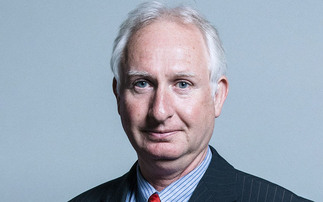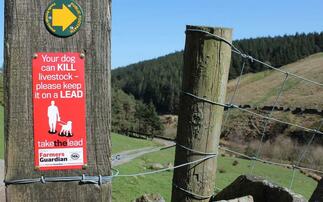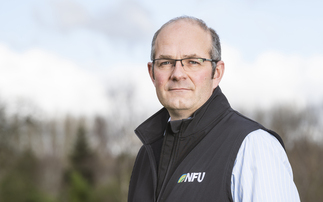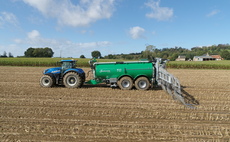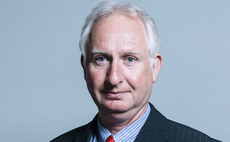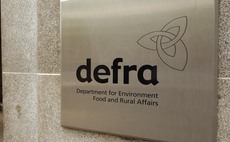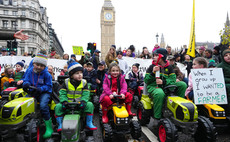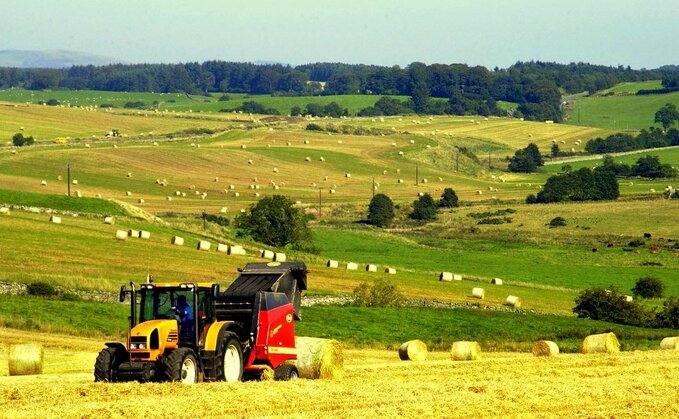
With the General Election campaign now coming to the end of its third week, with manifestos unveiled by many of the political parties, farmers have been giving their opinion on what they want to see from the future Government.
Essex arable farmer Robert Graham said whilst he did not expect agriculture to be an 'election battleground', he thought food security might well be and would be dependent on what happens in the commodity market over the next few months.
'Environmentalist at heart'
"Whilst I am an environmentalist at heart, the current headlong rush towards bumble bees and beavers is a misguided overreaction to past mistake.
"Sadly, I am aware of my naivety, and I do not think that Sir Keir Starmer is able to deliver my idealistic wishes. But I hope, like Biden, that he can deliver some radical policies beyond the manifesto promises and the grey persona portrayed in the media.
"The cautious, non-committal approach for which he is criticised perhaps masks a radical streak which will come through if he is elected."
Food security
He said he would expect Labour to be more concerned with food security, than the 'free trade fanatics of the right.'
Hampshire tenant pig farmer Flavian Obiero said he would not vote blue and 'most likely not red', but was still 'undecided' on who he should vote on July 1.
READ ALSO: Labour outlines 'countryside pledge' as TV presenter enters right to roam row
Mr Obiero said: "Any party that has a genuine interest in improving food security will get my vote.
"Having a government that actually does what it says it will do. Not the usual nonsense of too much dithering and not enough doing."
Defra
Wiltshire organic dairy farmer Peter Gantlett is a member of the Conservative party and he said he hoped the next PM would appoint someone as Defra Secretary 'who wants the job, is serious and competent and stays in place for the length of parliament.'
He said: "For some journalists, politics is a soap opera, and they are delighted when elections come around. I believe it should be about policy, not personality."
Alan Steven farms 120 hectares on Scotland's east coast, growing vegetables and producing malting barley for whisky, porridge, as well as winter wheat for seed production.
Leadership
He said: "We are Liberal Democrat locally, both the MP and MSP. They have both been in touch about issues in farming and did help in getting fibre broadband to our business. However, they are on tight majorities with the SNP close behind. The SNP has turned into a one-trick pony and is getting tail-pulled by the Greens.
"We do not have leadership in agriculture at moment and do not even have a budget. The whole job is being led by a cheap food agenda to keep the cost of living down."
Suffolk organic arable farmer John Pawsey said his election priorities were aligned to a government that has a firm grasp in dealing with a fragile economy, but also a Government that delivers on positive climate and nature recovery targets
Climate change
"I was blue but have just joined the Green Party. I will probably vote yellow, as long as I think they have a good handle on the economy."
READ ALSO: Farmer reaction to collapse of Mona Dairies
Rees Keene is a fourth-generation farmer from Gloucestershire who produces vegetables, fruit and Christmas trees on his family's 69-hectare farm.
He said his 'election nightmare' would be a poorly thought out financial planning and taxes designed to appeal to voters rather than fix any issues.
Planning legislation
"Last year's fiasco with Liz Truss would be a prime example of a nightmare!"
He also said throwing out the current planning system and expecting someone else to fix it, as well as 'going crazy on the green focus, or the other way' would be two big concerns for him at the ballot box.
He said he was a 'little embarrassed to say' he would currently vote Blue.
"I would not say it is in my veins. I would jump ship if I felt another party offered a better solution to my concerns. I do not envy those in power, whoever it is has a tough job to do and will always face criticism."
Welsh farming
Leicestershire dairy farmer Ruth Grice said she wanted a party that understood rural issues.
"I really feel for Welsh farmers at the moment – it appears from the sidelines that they have everything against them, policy wise. I do not think we would stay in business for long if we were operating under similar circumstances.
"On the face of it, I would have thought that the Conservatives would favour rural policies. But it has not always felt that way in recent years. I am undecided and will probably remain so until nearer the election when manifestos are officially released."
Confidence
Wiltshire arable and beef farmer Ben Cooper said the next Government needs to offer a clear commitment to UK farming, and a landscape where farmers are not deterred from investment and making change, due to fear of what is next to come.
"I want the next Government to put UK produced food and countryside protection at the heart of its plans rather than a small subsection. A Government that people feel confidence in.
"I have no political party allegiance. However, I would normally vote Conservative over Labour and have voted Lib Dem before. I try to vote on the candidate's merits and how they come across rather than the party if I can.
"If a party's policies are, in my opinion, damaging to farming or more specifically being able to run a profitable rural business, or I feel they simply do not understand how hard farmers are working to make a living, then I just could not vote for them regardless of the merits of the candidate."
Education
Somerset organic dairy farmer Sophie Gregory said her election priorities was ensuring food and farming was on the National Curriculum and there was an organic agenda through the food chain, with support payments.
She said: "I want the Sustainable Farming Incentive (SFI)* to do what is says it is going to do."
Ms Gregory's 'election nightmare' would be 'more cheap food agendas and more unsustainable trade deals.'
When probed who she would vote for, she said "I actually do not mind the colour – I just want food, farming, and the environment to be understood and prioritised."









